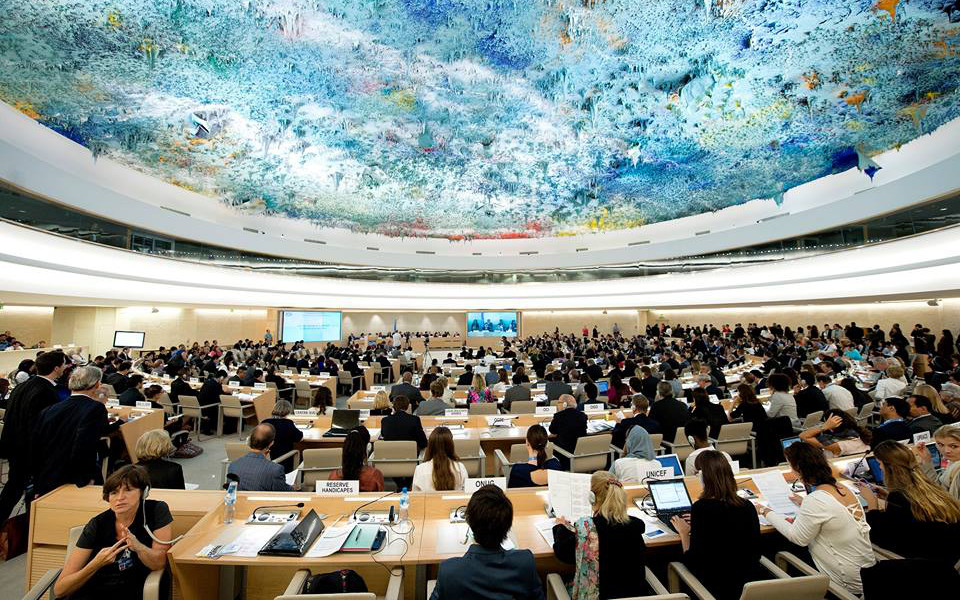In advance of the 29th Session of the United Nations (UN) Human Rights Council’s Working Group on the Universal Periodic Review of Human Rights (UPR), scheduled for 15-26 January 2018, nearly 20 stakeholders submitted information on reform efforts made by the Government of the United Arab Emirates (UAE), which will come under its third-cycle review during the upcoming meeting. Americans for Democracy & Human Rights in Bahrain (ADHRB) was joined by 18 other individual or joint stakeholders – including international human rights organizations like Access Now, the Institute on Statelessness and Inclusion (ISI), Human Rights Watch (HRW), and Reprieve – in providing evaluations of the Emirati government’s attempts to implement its second-cycle UPR recommendations since the 2013 review, covering a range of key thematic issues from human trafficking and labor rights to impunity and discrimination. The UN Working Group compiled and summarized this information into a single report on all stakeholder submissions, revealing a consensus that the Government of the UAE has failed to institute critical second-cycle reforms and continues to engage in the violation of fundamental human rights.
ADHRB’s submission specifically assessed the UAE’s compliance with second-cycle recommendations to adhere to international treaties and human rights mechanisms; guarantee the rights to free expression, association, and assembly; and reform the criminal justice system, concluding that the government continues to impose severe restrictions on independent civil society space while employing torture, enforced disappearance, arbitrary detention, and unfair trial procedures in reprisal for activism. The UN Working Group cited ADHRB’s evaluation nine times in its stakeholder report, utilizing the submission’s information on the Emirati government’s failure to implement recommendations to combat discrimination; protect free press and expression; guarantee human rights while countering terrorism; permit access to all UN Special Procedures; abolish the death penalty; end torture; improve accountability for abuse; reform cybercrime legislation; and facilitate the work of journalists, human rights defenders, and other civil society actors.
Other stakeholder submissions evaluated additional key issue areas. The ISI, HRW, and the Global Campaign for Equal Nationality Rights (GCENR) highlighted that the Emirati government has not improved its nationality legislation and continues to use citizenship revocation as punishment for dissent. Likewise, a joint submission from CIVICUS: World Alliance for Citizen Participation, the Gulf Centre for Human Rights (GCHR), and the International Service for Human Rights (ISHR), found that UAE authorities did not implement recommendations to protect the right to free association or lift excessive limitations on free speech, among other necessary reforms. Almost all stakeholders noted that the Emirati government has contravened recommendations to ensure the most basic human rights like free expression.
The UAE’s third UPR cycle will begin on Monday, 22 January 2018. Check back for ADHRB’s analysis of the cycle’s outcomes.





